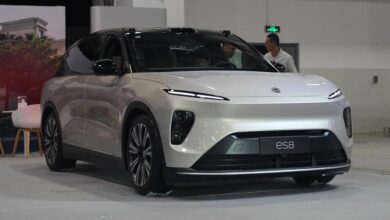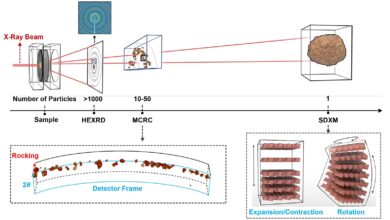Honda deal by the numbers

Auto giant announces plans to build Canada’s first comprehensive electric vehicle supply chain
Article content
Honda Motor Co. Ltd. on Thursday announced plans to build Canada’s first comprehensive electric vehicle supply chain in Alliston, Ont., with a total investment of $15 billion. Here’s a by-the-numbers look at the deal:
$15 billion: Overall cost of the project
Article content
The large-scale project will see the Japanese automaker build four new manufacturing plants in Ontario. The full electric vehicle supply chain will include Honda’s first electric vehicle assembly plant as well as a stand-alone battery manufacturing plant at Honda’s facilities in Alliston. It will also include a new CAM/pCAM processing facility through a joint venture partnership with Korean battery materials company POSCO Future M Co. Ltd., and a separator plant through a joint venture partnership with Japanese chemical company Asahi Kasei Corp.
Advertisement 2
Article content
$5 billion: Value of government subsidies
It is estimated that Honda could benefit from a total of $5 billion in government incentives, split evenly between the federal government and the province. Federal support will be in the range of $2.5 billion through the government’s proposed EV Supply Chain investment tax credit and the proposed Clean Technology Manufacturing investment tax credit, in addition to support of up to $2.5 billion through various direct and indirect incentives from the government of Ontario. The federal government is also expected to offer 10 per cent tax credits on the cost of constructing buildings, and 30 per cent on the cost of new machinery and equipment, as per a refundable Clean Technology Manufacturing investment tax credit.
1,000: Number of total jobs it will create
Honda currently employs over 4,200 people in Alliston and has a network of more than 280 dealerships across the country. The new electric vehicle assembly plant and a battery manufacturing plant are expected to create more than one thousand union manufacturing jobs in the province.
Two other components of the deal — the CAM/pCAM processing plant and separator plant — are expected to help create thousands of additional direct and indirect jobs across Canada. Many of those will come during the construction phase and through knock-on effects on Ontario’s other leading auto parts suppliers and developers.
Advertisement 3
Article content
Recommended from Editorial
240,000: Number of vehicles the plant can produce per year
Once fully operational in 2028, the new assembly plant will be capable of producing up to 240,000 vehicles per year. Honda’s existing manufacturing facilities in Canada currently include two auto plants and one engine plant, with the total capacity to produce more than 400,000 vehicles and 190,000 engines annually. Canada’s automotive sector builds more than 1.5 million vehicles each year — one every 21 seconds, contributing $18 billion in 2023 to the economy’s gross domestic product. The federal and provincial governments said Canada is well positioned to be a major player in EV production, projecting global sales of EVs in 2030 to be more than three times higher than 2023 levels. Planning for the new facilities is expected to be finalized in the next six months, at which point Honda will release additional details.
• Email: dpaglinawan@postmedia.com
Bookmark our website and support our journalism: Don’t miss the business news you need to know — add financialpost.com to your bookmarks and sign up for our newsletters here.
Article content






